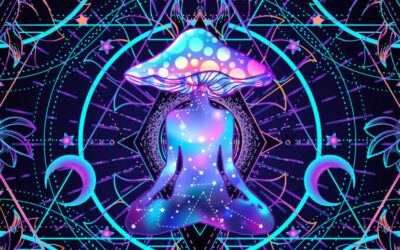If you go into that white light, another experience wiped out…
It’s one of life’s biggest questions: What happens when you die?
An increasing number of near death experiences, or NDEs, are being reported thanks to advances in medical science and increased resuscitations of the dead.
And several survivors have come forward to share their glimpses of what they believe is a realm beyond this life.
Scroll down for video
 Life-changing: Houston therapist Mary Jo Rapini is among the group interviewed for ABC News programme Beyond Belief: Near Death Experiences
Life-changing: Houston therapist Mary Jo Rapini is among the group interviewed for ABC News programme Beyond Belief: Near Death Experiences White light: Many NDE survivors report seeing tunnels of white and coloured lights as the float out of their bodies
White light: Many NDE survivors report seeing tunnels of white and coloured lights as the float out of their bodiesHouston therapist Mary Jo Rapini is among the group interviewed for ABC News programme Beyond Belief: Near Death Experiences, which follows several survivors who were clinically pronounced dead or were near dead when their encounters occurred.
Ms Rapini, who says she heard God tell her to go back after she suffered a brain aneurysm in 2003, remembers being engulfed in a pinkish glow, which prompted her to write Is God Pink? Dying to Heal.
‘All of a sudden it just came over me and I was in it. I was in that light, and I came to this beautiful area.
‘It’s not human so it’s difficult to express it humanly but the room was beautiful,’ she said.
Ms Rapini rejects scientific reasoning as an explanation for her NDE.
 Message to share: Reverend Don Piper of Pasadena, California believes he was sent back to spread the message that ‘heaven is a real place’
Message to share: Reverend Don Piper of Pasadena, California believes he was sent back to spread the message that ‘heaven is a real place’ Horrific: Mr Piper said he was dead for 90 minutes after a car he was in was crushed by an 18-wheeler in a head-on crash in 1989 (pictured here)
Horrific: Mr Piper said he was dead for 90 minutes after a car he was in was crushed by an 18-wheeler in a head-on crash in 1989 (pictured here)‘I had such a sense of knowingness there everything made sense… Unlike a dream that was never clear, this was so clear,’ she continued. ‘Scientists who say it’s a dream, or – I beg to differ. It’s not that.’
But her story is not uncommon.
News anchor Bob Woodruff recalls a similar experience that occurred after he was severely injured in Iraq in 2006. After his vehicle hit an improvised explosive device, Mr Woodruff remembers seeing his body floating below and seeing a bright white light during the minute he was unconscious.
Reverend Don Piper, of Pasadena, California, was travelling in a car when it was crushed by an 18-wheeler in a head-on crash in 1989. Paramedics declared him dead.
He was without a pulse, he says, for 90 minutes before he came back to life after a passer-by began to pray and sing hymns over his body.
 Out-of-body experience: News anchor Bob Woodruff recalls floating above himself after losing consciousness after he was severely injured in Iraq in 2006
Out-of-body experience: News anchor Bob Woodruff recalls floating above himself after losing consciousness after he was severely injured in Iraq in 2006‘(The) steering wheel impaled me in the chest and then the car’s roof collapsed on my head so there’s just no way you could survive this accident,’ he said.
But the experience he had before rejoining the living he says could not be explained as anything other than life after death.
He says he remembers music that was ‘beyond spectacular’ and aromas he’d never smelled before. His grandfather was there to greet him alongside several others who had died before him.
They all stood in front of a magnificent gate, with lights that were ‘pulsating with life,’ he said.
 Not alone: Jane Seymour famously described her near-death experience in 2005, after an allergic reaction caused her to go into anaphylactic shock
Not alone: Jane Seymour famously described her near-death experience in 2005, after an allergic reaction caused her to go into anaphylactic shockMr Piper, who endured dozens of surgeries to fix his bones, had to learn to walk again. He wrote about the trauma in New York Times best-seller 90 Minutes in Heaven: A True Story of Death and Life.
‘You know, if I was having a dream about it, this wouldn’t be in it,’ he said. ‘Some of these people who met me at the gates, I haven’t thought of in decades.’
WHAT IS A NEAR-DEATH EXPERIENCE?
Near death experiences (NDEs) are defined as as feelings that sometimes occur when a person is nearly dead or has been clinically declared dead.
Many survivors report out-of-body experiences, seeing flashes of light, having awareness of being dead and meeting deceased relatives, and describe an overall feeling of calmness and lack of pain.
Scientists offer different theories as to why they occur, the most popular being the ‘dying brain hypothesis’ – the idea that when the brain is under stress, it releases a flood of neuro-chemicals that create flashes of light, peace and calm.
In April 2010, researchers in Slovenia reported cardiac arrest patients who had NDEs also had much higher carbon dioxide levels than those patients who did not.
Another study conducted in 2009 by University of Kentucky researchers credited their occurrence with ‘blurring of sleeping and waking states.’
But often, survivors say their experiences cannot be explained by scientific logic.
He believes he was sent back to spread the message that ‘heaven is a real place’.
That was also the case with twelve-year-old Colton Burpo, the Nebraska boy whose near-death experience at age four is recounted in the current best-seller Heaven Is for Real; gunshot victim Erin Smith of Montgomery also talks about her experience at age 17.
Jane Seymour famously described her near-death experience during an interview with Larry King in 2005.
An allergic reaction caused Seymour to go into anaphylactic shock. Ms Seymour said she saw light and believes ‘there is some spiritual entity that’s greater than us,’ although she said she does not follow a specific religion.
Perhaps surprisingly, NDEs have a relatively frequent rate of occurrence – in one study reported by the Huffington Post, one in ten cardiac arrest survivors reported having them. Medical advances have led to an increased number of resuscitations, scientists say, contributing to a rise over recent years.
But debate continues over whether NDEs are spiritual or scientific in nature.
While many say their journeys through dark tunnels, flashes of light, awareness of being dead and meetings with deceased relatives cannot be explained by science, many researchers credit simple biological responses for the bizarre experiences.
The most common explanation is the ‘dying brain hypothesis,’ the idea that when the brain is under stress, it releases a flood of neuro-chemicals that create flashes of light, peace and calm.
In April 2010, researchers in Slovenia reported cardiac arrest patients who had NDEs also had much higher carbon dioxide levels than those patients who did not.
Another study conducted in 2009 by University of Kentucky researchers credited their occurrence with ‘blurring of sleeping and waking states.’
Still, very little is known about the mysterious phenomenon.
Dr Sam Parnia, an expert on consciousness and death, launched the world’s largest study on near death experiences in 2008 by deciding to interview nearly 1,000 survivors of cardiac arrest.
The results are expected to be released next year.
Watch video here



